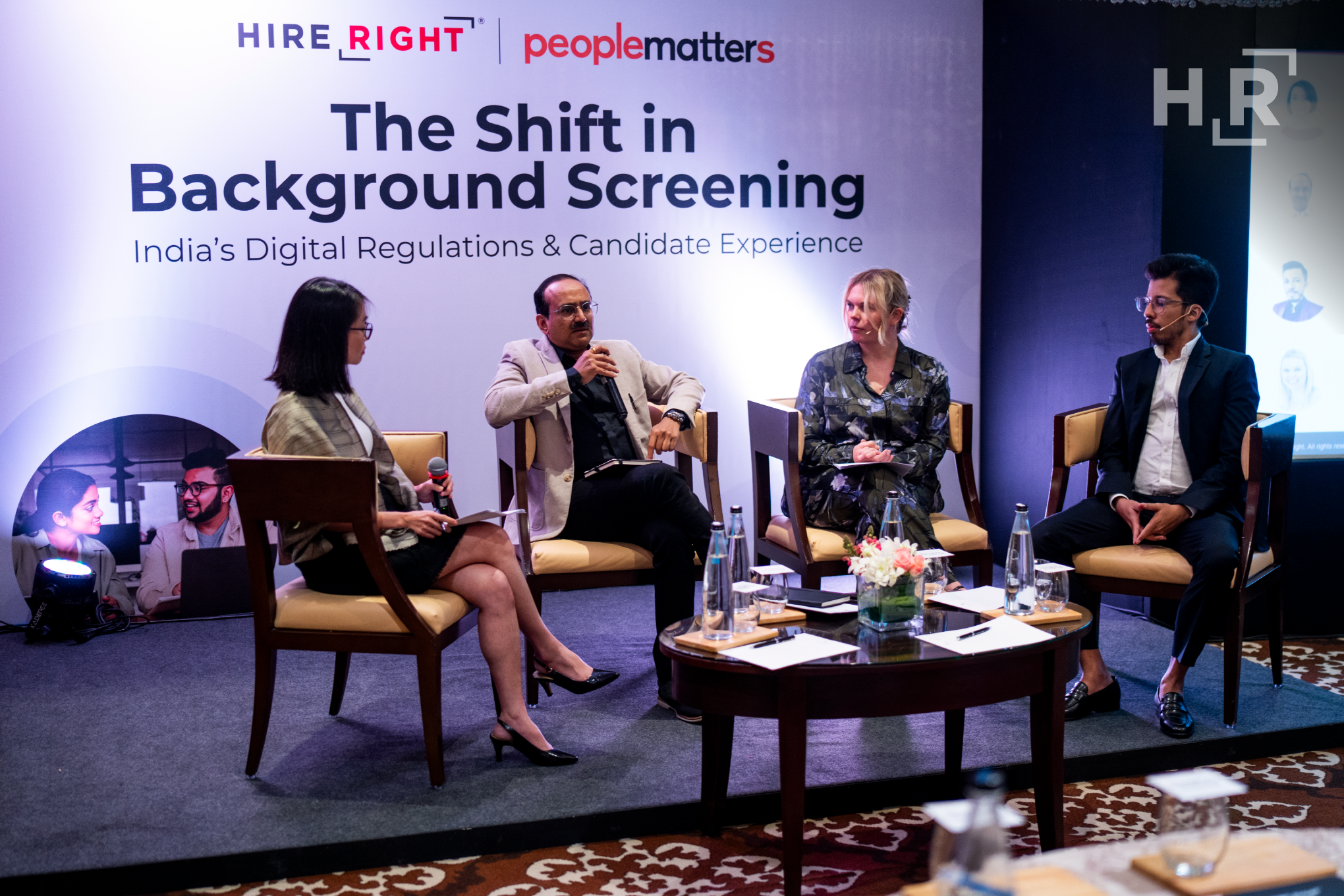The DPDPA Revolution: Transforming Background Screening and Data Compliance in India
India’s new Digital Personal Data Protection Act (DPDPA) is more than just another regulation—it's a pivotal shift in how organisations must handle personal data. Read more about how significant changes that will impact various aspect of data management, especially in the critical area of background screening.

India’s new Digital Personal Data Protection Act (DPDPA) is more than just another regulation—it's a pivotal shift in how organisations must handle personal data.
For HR professionals and business leaders, the DPDPA introduces significant changes that will impact various aspect of data management, especially in the critical area of background screening. In today’s digital age, where data security and privacy are paramount, staying compliant isn't just about avoiding penalties—it's about safeguarding your organisation's reputation and building trust with your candidates.
At an exclusive roundtable titled “The Shift in Background Screening: India’s Digital Regulations & Candidate Experience,” hosted in partnership with HireRight, over thirty industry leaders gathered in Bengaluru to discuss the upcoming priorities. The event kicked off with a keynote by Caroline Smith, Vice President and Deputy General Counsel at HireRight, focusing on the DPDPA. This was followed by a fireside chat led by Ko Hui Yen, Senior Vice President and Managing Director of APAC at HireRight, and concluded with a lively roundtable discussion.
What’s Changing?
The DPDPA is a principles-based law that governs personal data processing. It strongly encourages the digitisation of records, recognising the risks of manual processes and pushing organisations towards more secure, efficient digital solutions. This shift not only enhances data accuracy but is also expected to reduce costs. In her keynote, Caroline Smith spoke about how the Digital Personal Data Protection Act 2023 is revolutionising background screening in India. Here are a few key takeaways:
Enhanced Individual Data Rights and Organisational Responsibilities: The DPDPA empowers individuals with robust data rights, including access, correction, and deletion of personal data. Organisations must establish clear processes for managing these requests, particularly when relying on consent as the legal basis for data processing, which could significantly impact customer relations and trust.
Heightened Compliance Obligations for Significant Data Fiduciaries: Organisations designated as significant data fiduciaries under the DPDPA must meet rigorous compliance standards, including appointing a Data Protection Officer, conducting regular impact assessments, and performing independent audits. Failure to comply can result in severe penalties, emphasising the importance of proactive data governance.
Critical Role of Consent Managers and Data Processors: The introduction of consent managers as intermediaries to handle consent from data principals introduces a new layer of accountability. Despite data processors not being directly liable under the DPDPA, organisations must ensure their vendors comply with stringent data protection standards, making vendor management a top priority.
Overall, the DPDPA is driving a shift from manual to digitised data management, as digitisation reduces risks associated with human error and enhances data security. And adhering to DPDPA's privacy principles can improve the candidate experience during recruitment.
India’s Business Readiness
To dive deeper into business readiness, the keynote was followed by a panel discussion. Hui Yen and Caroline were joined by Prasad Kulkarni, Senior Executive Vice President & Head of People Operations at Citco, and Shawn Vaswani, Director of Account Management, APAC at HireRight, to discuss adapting to India's digital regulatory environment and the key to preparedness in India's corporate landscape.
Here are the top observations by the panelists:
Multiple vs. Single Vendor Partnerships: Organisations working with multiple vendors for background screening will face challenges in ensuring consistency, efficiency, and governance. A single vendor approach, particularly with a global provider, can simplify processes, enhance data security, and ensure compliance across multiple regions, thereby reducing the risks associated with data management and vendor coordination. Prasad emphasised the critical role of technology in streamlining compliance.
Audit, Audit, and Audit: The DPDPA highlights the importance of conducting thorough audits of current data processing practices. Organisations should proactively audit their policies, processes, and vendor relationships to identify any gaps in compliance. Proper documentation during audits not only helps in compliance but also serves as a strong defence in case of regulatory scrutiny, mitigating potential fines and penalties.
Complexities of Cross-Border Data Transfers: While the DPDPA allows cross-border data transfers, it comes with the caveat that the Indian government can restrict transfers to certain jurisdictions, Caroline noted. Organisations need to stay vigilant and ensure that their data storage and processing practices are in line with both Indian regulations and the requirements of other countries where they operate. This adds a layer of complexity to global operations, particularly for businesses managing data across multiple regions.
Future-Proofing Background Screening Programs: Shawn, representing HireRight, emphasised the importance of adopting a comprehensive approach. Apart from auditing current processes, companies need to leverage technology for compliance, and ensureing that all stakeholders—from senior leadership to program executors—are aligned and informed about changes in legislation and technology. This proactive approach will help organisations remain agile and compliant in a rapidly evolving environment.
In closing, Hui Yen emphasised the importance of a unified technological platform for managing data and compliance under regulations like GDPR and the DPDPA. She noted that a single platform simplifies data storage, maintenance, and responses to data requests, while also enhancing security and ensuring legal compliance. Choosing the right partner with a robust technology and compliance framework is key to navigating the complexities of data management, maintaining trust, and minimising risks. For more information, please contact HireRight here.
Release Date: August 28, 2024

Caroline Smith
Caroline is a UK qualified lawyer with over 18 years’ experience and currently serves as HireRight’s Deputy General Counsel for the EMEA and APAC regions. When not “lawyering” or writing blogs, Caroline can be found striking yoga poses in remote locations such as Mongolia and Bhutan.